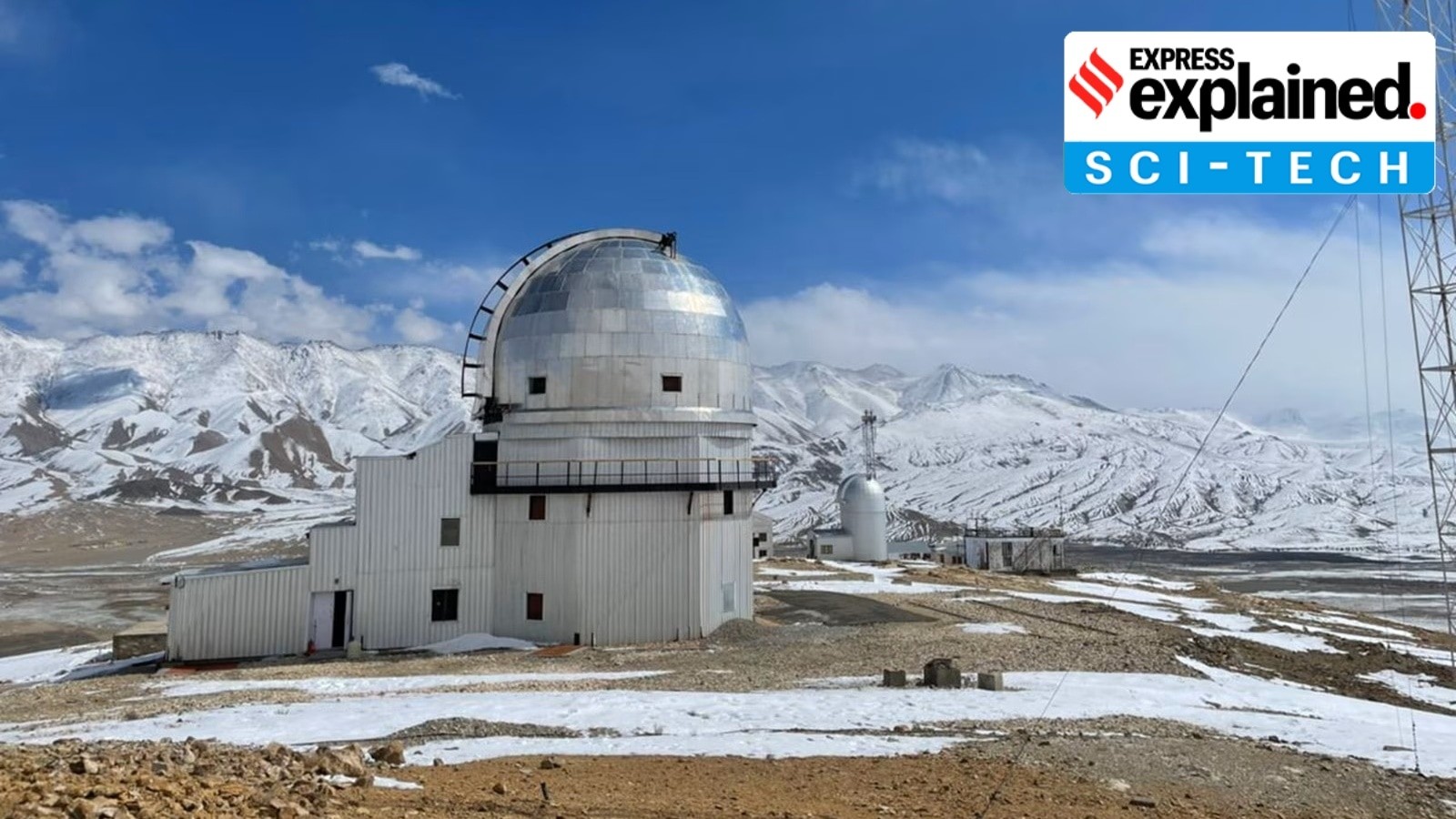Description

Disclaimer: Copyright infringement not intended.
Context:
- Scientists have discovered that melting polar ice caps, driven by climate change, are causing Earth’s rotation to slow down slightly.
Details:
- Climate change, predominantly caused by human activities, has a wide array of effects on our planet.
- Among these is an intriguing yet less-discussed consequence: the alteration of the Earth's rotation and, consequently, the length of a day.

The Physics Behind the Phenomenon
- The primary mechanism through which climate change affects the Earth's rotation is the melting of polar ice caps. When ice at the poles melts, the water flows towards the equator.
- This redistribution of mass causes the Earth to bulge slightly at the equator, slowing its rotation.
- As a result, the time it takes for the Earth to complete one full rotation increases, leading to longer days.
- This can be understood through the conservation of angular momentum.
- As the mass moves away from the axis of rotation (towards the equator), the rotational velocity decreases, similar to how a figure skater slows down when extending their arms.
Empirical Evidence
- Research utilizing climate models and real-world data over a 200-year period (from 1900 to 2100) has quantified these changes.
- Over the last two decades, it has been observed that the rate of Earth's rotation has slowed by approximately 1.3 milliseconds per century.
- While this change might seem negligible, it accumulates over time and can have broader implications.
Broader Implications
- Timekeeping and Technology: Many modern technologies rely on extremely precise timekeeping.
-
- Even minor changes in the length of a day can affect systems dependent on exact synchronization, such as GPS satellites and global communication networks.
- Environmental Impact: The movement of water masses also contributes to rising sea levels, which have more immediate and devastating consequences for low-lying coastal areas.
-
- Flooding, erosion, and habitat destruction are some of the severe outcomes faced by these regions.
- Climate Feedback Loops: Changes in rotational velocity may also contribute to other climate feedback mechanisms, further exacerbating climate change.
-
- The redistribution of mass can influence atmospheric dynamics, ocean currents, and weather patterns.
|
Impact on Timekeeping
|
Even minor changes in Earth's rotation can affect global timekeeping systems, digital infrastructure, and GPS satellites, leading to significant navigation and spacecraft communication errors.
|
|
Effects of Melting Polar Ice
|
The melting of polar ice contributes to sea-level rise and redistributes mass from poles to the equator, increasing Earth's oblateness and impacting rotational dynamics.
|
|
Human Impact
|
Human activities are altering Earth's climate and fundamental physical properties, with significant responsibilities for the future.
|
|
Need for Climate Action
|
Urgent and sustained efforts are needed to reduce greenhouse gas emissions and implement sustainable practices to mitigate far-reaching consequences, including changes in Earth's rotation.
|
|
Broader Implications
|
The melting of polar ice caps is a planetary issue that affects Earth's rotation and the length of days, emphasizing the critical need for global cooperation and climate action.
|
Conclusion
- The effect of climate change on the length of a day illustrates the interconnectedness of Earth's systems.
- While the lengthening of days might not have a direct impact on our daily lives, the broader implications for technology and the environment are significant.
- This phenomenon highlights the urgent need to address climate change comprehensively.
KNOW IN DETAIL ABOUT CLIMATE CHANGE AND ITS IMPACTS- https://www.iasgyan.in/daily-current-affairs/copernicus-climate-centre-service#:~:text=June%202024%20is%20considered%20as,cyclic%20states%20of%20El%20Nino.
GLOBAL WARMING- https://www.iasgyan.in/daily-current-affairs/global-warming-in-indian-contex
MELTING OF ICE- https://www.iasgyan.in/daily-current-affairs/antarcticas-sea-ice
Reference
https://epaper.thehindu.com/ccidist-ws/th/th_international/issues/95103/OPS/GSHD6QF3K.1.png?cropFromPage=true
https://www.policycircle.org/environment/climate-change-heat-long-days/#:~:text=Since%201900%2C%20climate%20change%20has,reach%202.2%20milliseconds%20by%202100.
|
PRACTICE QUESTION
Q. Explain the fundamental reasons behind the slow rotation of the Earth due to climate change. Also, provide a shred of empirical evidence for the observed effects, and analyze the broader implications for environmental systems.
|












